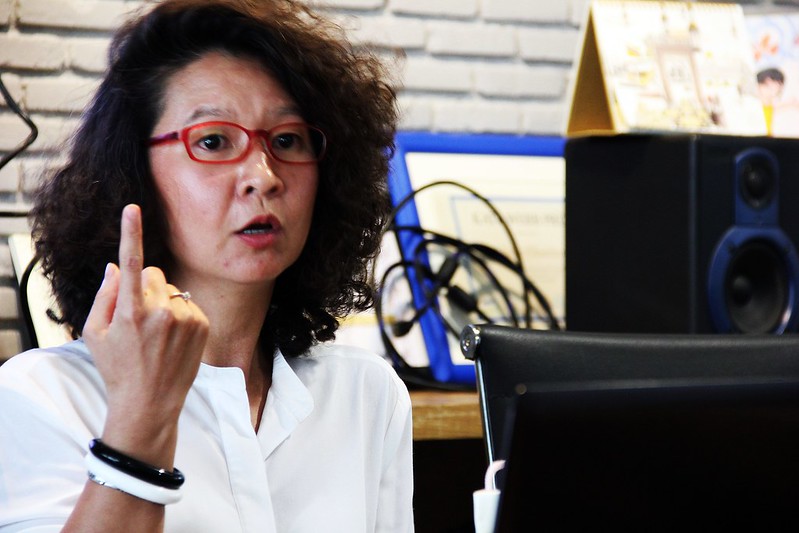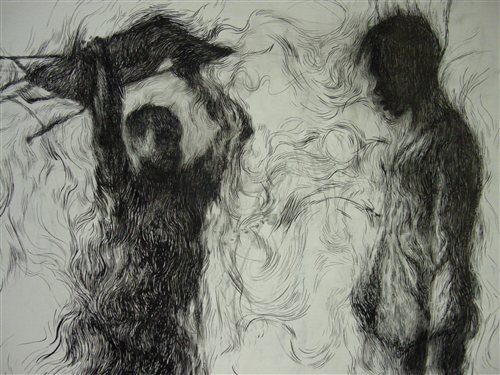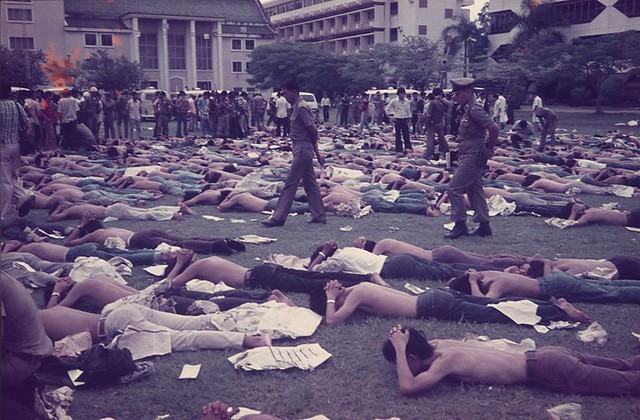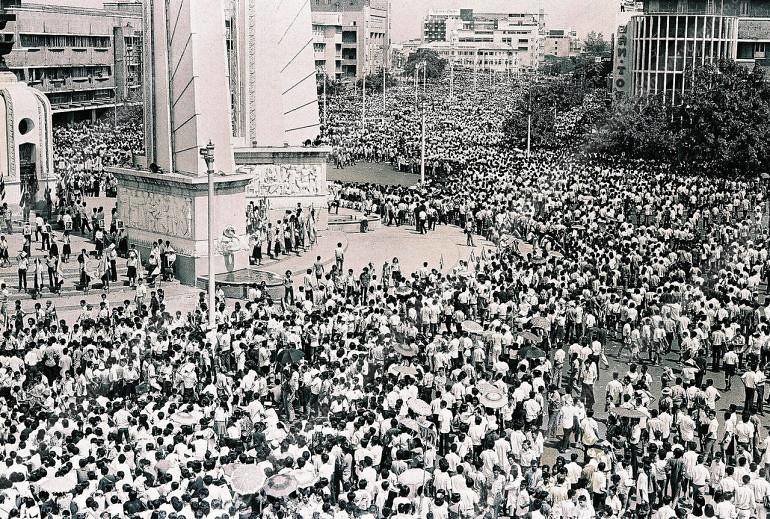October is an important month in Thailand’s political history as it marks the anniversary of two important political events. One is the popular uprising of 14 October 1973 where thousands of people rose up against military dictatorship, while the other, which occurred on 6 October 1976, was a massacre where unofficial sources claim that more than 100 people died.
Over forty years later, many former leftist student activists who took part in the two events have wielded great influence over Thailand’s political landscape, especially during the political crises of the last 2 decades where surprisingly, many supported the coups d’état against elected governments. To shed light on the discourse of the political movement then and those who took part, Prachatai talked to Kanokrat Lertchoosakul, lecturer at the Faculty of Political Science of Chulalongkorn University, who authored The Rise of the Octobrists: Power and Conflict among Former Left Wing Student Activists in Contemporary Thai Politics.

Kanokrat Lertchoosakul (file photo)
Who are the Octobrists?
The Octobrists are people who were involved in political activities before and after 14 October 1973 when the student movement triumphed over a two-decade-long military dictatorship. Between 1973 and 1976, they continued to work closely with left-wing labour, farmer and other grassroots movements. Thousands of them later joined the revolutionary mission of the Communist Party of Thailand (CPT). After the collapse of the CPT, however, they reappeared in public, as neither former student activists nor leftist failures, but as ‘Octobrists’ (khon duean tula). Seksan Prasertkul, a former 14th October student leader, coined this term at the 20th anniversary of 6th October 1976.
The Octobrists reappeared in different careers and revitalised their roles in the country’s political transition. Several of them reached top positions in various political parties, cabinets and state agencies while others became successful businesspeople, not to count those who became influential in the media and academia. In the political reform of the late 1990s, the role of the Octobrists and their networks became even more visible. In the initial stage of the reform, many Octobrist academics and public intellectuals, like Thirayuth Boonmee, became pioneers in constructing the discourse of ‘good governance’ and urging cross-class collaboration and interaction among civil society and political institutions for political reform.
“When in Thai society the electoral system and political parties were just starting in the 90s was the time when these people came at the right moment. Just as they came, political parties were opening up, looking for candidates. Political parties in Thailand are personal parties. They didn’t have a voter base in the countryside or people who could do campaign work. So this group of came in as people who already had the skills. As soon as they arrived, parties took them all. It was a shortcut because they had special skills as their unique assets,” said Kanokrat.

A painting by Thanit Phonglang called 'the chair for you' inspired by Neal Ulevich's photo of the 6 October 1976 massacre (Photo from Artistdaily)
Romanticising the Octobrists
The Octobrists have been successful in rewriting history and creating a discourse in which 14 October was narrowed down to a chapter in the movement toward democracy while 6 October was reduced to a struggle by innocent students for justice and equality against state violence, although the two events were more dynamic in reality.
“They rewrote history whether intentionally or not. If the new generation of people can’t remember the history of 6 October we can’t point fingers and criticise them. My work attempts to explain that this is not the fault of the new generation, but it is partly because the Octobrists themselves don’t want to talk about the leftist history of those who have rewritten history. Therefore, we can’t really explain the history of 6 October because in Thai society there is no space for the left. If you want to make a comeback, you must not say that you yourself were a leftist. If you want to come back and take a place in society, whether in business, or as a politician, or an activist, you must not say that you are a leftist,” Kanokrat said.
She also pointed out that the Octobrists have also concealed the conflicts and differences between the political movements leading up to 14 October and 6 October, which were dominated by different political ideologies. While the movement prior to 14 October was dominated by a wide political spectrum ranging from liberalism to communism, the student movement after 14 October was dominated by Maoism of the left and was more affiliated with the CPT.
Kanokrat added that the differences between these two movements could explain why some Octobrists were involved in the People’s Alliance for Democracy (PAD) against the democratically elected government of Thaksin Shinawatra and seemed to lend support to the coup which ousted him in 2006.

An iconic photograph of the 6 October 1976 massacre taken by Frank Lombard
The influence of the Octobrists reached its zenith during the Thaksin government. Many then played vital roles in formulating public policies for the Thai Rak Thai Party, the predecessor of the Pheu Thai Party, while others led many civil society organisations. However, the political transformation of the country which brought about Thaksin government also marked the beginning of their fall.
Prior to the promulgation of the 1997 constitution, the political structure forced political parties to compromise and rule through coalitions. After the triumph of the Thai Rak Thai Party under Thaksin’s leadership, however, the conflicts between different groups of Octobrists became more obvious as they tried to use the Octobrist discourse for their political benefit.
“Over the course of the past ten years, these former student activists have become increasingly divided, amidst the protracted conflict between Yellow Shirt (anti-Thaksin) and Red Shirt (pro-Thaksin) forces in Thai politics. Octobrists have defended opposing political stances and severely attacked one another across the political divide,” Kanokrat wrote in her book.

14 October 1973 (Photo from Kapook.com)
The lost generation which no longer has democratic legitimacy
“The sole problem of the Octobrists and Thai middle class is that they don’t understand what the cycle of the democratic system is,” Kanokrat told Prachatai.
Thai society has transformed tremendously in the last 20-30 decades. Amid the rapid changes, the Octobrists failed to adapt and became a ‘lost generation’ who are ill-equipped to explain the new political landscape of the country. Kanokrat added that she found from her interviews with former activists who went into the jungle after the 6 October massacre that they do not read much and do not see the changing world as it is.
At the beginning, the Octobrists effectively gave meaning to democracy by creating the discourse by laying out events such as the 1932 Revolution, 14 October 1973, and Black May 1992 (a popular protest in Bangkok against the dictatorship of General Suchinda Kraprayoon) as stepping stones to democracy. Therefore, many people in Thai society understood that democracy is about fighting against dictatorship, but they did not discuss the continuation of electoral democracy. As democracy continues to take root, they have been pushed to the side and could not enjoy similar status in the electoral democratic system.
“Before, when they opposed dictatorship because they were the ‘new emerging middle class’, what they wanted was to resist the system oppressing them. That was the military. But amid the economic growth after they returned from the jungle, they developed their own status to become the established middle class. And as the established middle class in a society in which they were a minority, they had no political channel or space. They could not accept a system where they were on the margins of society.”
Note: This interview is based on the earlier interviews with Kanokrat Lertchoosakul published on Prachatai Thai and her book.
Since 2007, Prachatai English has been covering underreported issues in Thailand, especially about democratization and human rights, despite the risk and pressure from the law and the authorities. However, with only 2 full-time reporters and increasing annual operating costs, keeping our work going is a challenge. Your support will ensure we stay a professional media source and be able to expand our team to meet the challenges and deliver timely and in-depth reporting.
• Simple steps to support Prachatai English
1. Bank transfer to account “โครงการหนังสือพิมพ์อินเทอร์เน็ต ประชาไท” or “Prachatai Online Newspaper” 091-0-21689-4, Krungthai Bank
2. Or, Transfer money via Paypal, to e-mail address: [email protected], please leave a comment on the transaction as “For Prachatai English”
